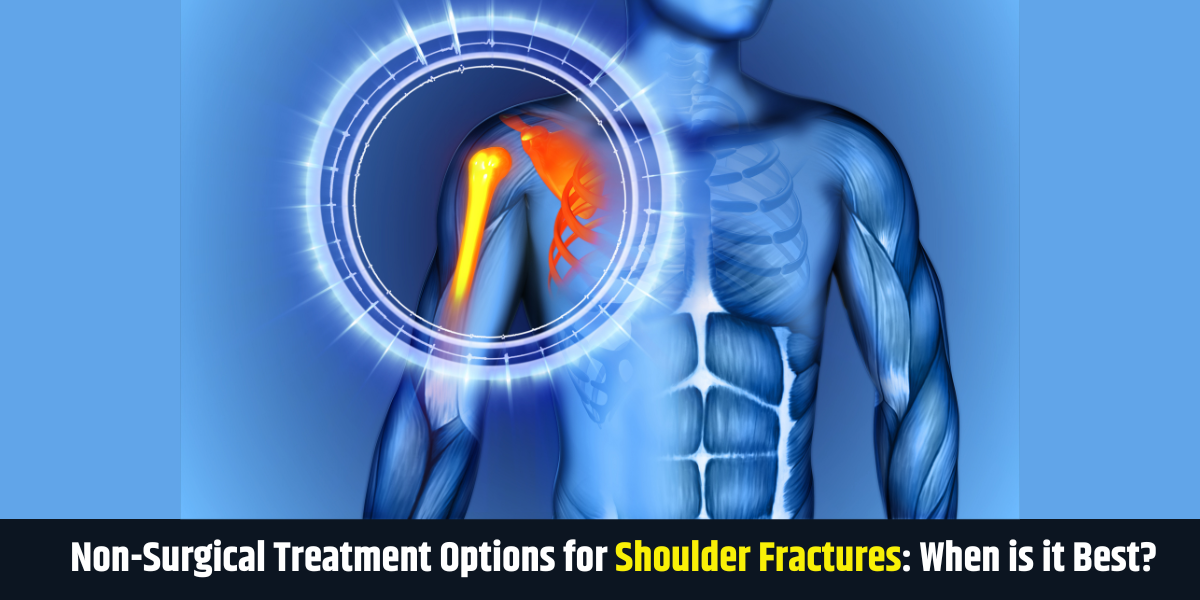Non-Surgical Treatment Options for Shoulder Fractures: When is it Best?
Shoulder fractures can be painful and limiting, affecting daily activities and quality of life. While surgery is sometimes necessary, many patients benefit from non-surgical treatment options. Dr. Shrikant Dalal, a renowned spine doctor in Pune, emphasizes that understanding the nature of the fracture is crucial in determining the best treatment approach.
What Are the Common Types of Shoulder Fractures?
Shoulder fractures can occur in different areas of the shoulder, including the:
Clavicle (collarbone): Often fractured due to falls or direct impact.
Proximal humerus: The upper part of the arm bone can break in various ways.
Scapula (shoulder blade): Less common but can occur from severe trauma.
Understanding the type of fracture is crucial in determining the best treatment approach.
What Are the Signs and Symptoms of a Shoulder Fracture?
Common signs and symptoms of a shoulder fracture include:
Severe pain: Often localized around the shoulder area.
Swelling and bruising: Visible around the fracture site.
Limited mobility: Difficulty moving the arm or shoulder.
Deformity: In some cases, the shoulder may appear misshapen.
When is Non-Surgical Treatment Recommended?
Non-surgical treatment options are typically recommended for:
Stable fractures: When the broken bone ends remain aligned.
Non-displaced fractures: Fractures where the bone has cracked but not moved out of place.
Patients with high surgical risk: Those with underlying health issues may be better suited for non-surgical options.
In these cases, non-surgical methods may effectively promote healing and restore function, according to Dr. Shrikant Dalal, a leading spine doctor in Pune.
What Non-Surgical Treatment Options are Available?
Several non-surgical treatment options for shoulder fractures include:
Rest: Avoiding activities that exacerbate pain or mobility issues.
Ice therapy: Applying ice packs to reduce swelling and pain.
Pain management: Using over-the-counter pain relievers, such as ibuprofen or acetaminophen.
Immobilization: Wearing a sling or shoulder immobilizer to stabilize the joint.
Physical therapy: Once initial healing has occurred, guided exercises help regain strength and mobility.
How Long Does it Take for Non-Surgical Treatment to Heal?
The healing time for shoulder fractures varies based on factors like age, overall health, and the specific fracture type. Generally, non-surgical treatment can take 6 to 12 weeks for complete healing, but a healthcare professional can provide a more tailored estimate based on individual circumstances.
What Are the Risks of Non-Surgical Treatment?
While non-surgical treatment can be effective, potential risks include:
Improper healing: If the fracture is not adequately stabilized, it may not heal correctly.
Prolonged pain and discomfort: Some patients may experience ongoing symptoms even with conservative treatment.
Limited mobility: Depending on the fracture and treatment, full range of motion may take time to restore.
Regular follow-ups with a healthcare provider, like Dr. Shrikant Dalal, a prominent spine doctor in Pune, can help monitor healing and adjust treatment as needed.
When Should I Consider Surgery for a Shoulder Fracture?
Surgery may be considered if:
The fracture is displaced: Bone ends are misaligned and require surgical intervention to restore alignment.
There are multiple fractures: Complex cases often need surgical repair to ensure proper healing.
There is associated joint damage: Surgery might be necessary if the fracture impacts joint stability.
Non-surgical treatment options for shoulder fractures can be effective, especially for stable and non-displaced fractures. Understanding when to opt for conservative management and the available treatment options can help ensure a smooth recovery. Always consult with a healthcare professional like Dr. Shrikant Dalal, the trusted spine doctor in Pune, to determine the best course of action for your specific injury.


